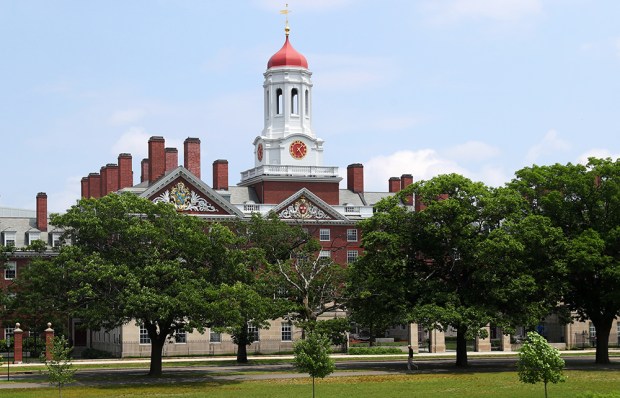Even in this bizarre year of Covid (for everybody) and ‘cancellation’ (for me), the last week or two has stood out as strange. Things began on a Friday morning with a brief and cryptic email from Toby Young. ‘Can you call me, David?’ it read. ‘I have a criminal solicitor for you if you don’t already have one.’ I replied with bemusement: ‘A bit lost on this one. What might I need one for?’ Toby, clearly surprised at my surprise, filled me in. Two days earlier the Met had summoned Darren Grimes for an interview under caution; threatened him with arrest if he didn’t show up and informed him that he was suspected of offences for broadcasting his interview with me. Which answered one question but posed another: why had the Met gone for the messenger and not for me?
It took until the following Tuesday for the mystery to be cleared up. Early that morning, the secretary of the Bow Group — an organisation with which I’ve only the remotest connection as a senior patron — forwarded me an email from a DC Shah which they’d received the previous week. The email, which bore the same date and was written by the same officer as the one summoning Darren, asked the Bow Group to put him in touch with me. But, the secretary added, ‘given its odd phraseology, grammar and the listing of only a mobile number, [we] assumed it to be a hoax, of which we receive many’. They only resurrected it after the publicity about Darren persuaded them that it might be genuine. ‘You’re being investigated by the Keystone Cops!’ Toby declared when he found out.
Very funny. But though DC Shah’s skills in detection didn’t even extend to finding out my contact details, known by every media intern in London, he had the ambition — and tried to behave as though he had the powers — of the Stasi. Shah had already threatened Darren with arrest without warrant. He referred darkly to those ‘in more of a prominent position in society’ who wanted the matter to be pursued. And he sought to bring the broadcast under the terms of section 22 of the Public Order Act of 1986 which carries a penalty of up to seven years imprisonment. Seven years! That’s 21 months for each one of the four letters of ‘damn’, as in the offending phrase ‘damn blacks’.
‘Damn blacks.’ Every time I see the phrase I burn with shame at my stupidity. How could I have used it, when I pride myself on my ability to talk in complete sentences and punctuate them too, if Milton-like I close my eyes and focus? But I did and I have apologised, endlessly but, it often seems, to no purpose. ‘The outcome is ridiculously harsh and wholly undeserved,’ a former colleague from LSE wrote after that extraordinary 48 hours at the beginning of July when, following a Twitter storm, I was stripped of every academic honour acquired in the course of a long and successful career. ‘The worst aspect,’ he continued, ‘is that there is no clear remedy — you can’t apologise, because your only possible offence is one of injudicious style not of substance, and anyway an apology would be dismissed… It’s lousy but there is nothing to be done except to exercise your stoicism.’
A more Olympian — and much less sympathetic view — of my plight was given by the Times in its third leader on the Met investigation. Grimes and I must not be made martyrs, it declared in full Thunderer mode. We were not worthy of it. Instead I should ‘retire in disgrace’. Retire in disgrace! Who writes this stuff? And which century do they live in? Presumably they wear spats and an eye-shade; have a permed secretary who takes Pitman shorthand, and dress for dinner each night. ‘Retire in disgrace’ in the age of Lord Archer and Jonathan Aitken? Die of shame when we are ruled by the likes of Boris Johnson and Donald Trump? It is shame itself that has died, and we are left foundering without it.
Shame meanwhile, or what’s left of it, on the board of the Hay-on-Wye literary festival and especially on its chair, Caroline Michel, since they appear to be on the point of sacking the director, Peter Florence, for unnamed complaints about his managerial style. Michel, a grand panjandrum of publishing and literary agency, makes an improbable Goneril. But she and the board seem about to commit the crime of parricide. Peter’s parents founded Hay; his genius made it an international success. How can these jackals and hyenas contemplate bringing down the big beast? Actually, my own experience answers my question, since organisations which, like Peter, I’d served and financed and founded dumped me in an instant in July. Who cares about gratitude when there’s virtue-signalling to be done?
Got something to add? Join the discussion and comment below.
Get 10 issues for just $10
Subscribe to The Spectator Australia today for the next 10 magazine issues, plus full online access, for just $10.
You might disagree with half of it, but you’ll enjoy reading all of it. Try your first month for free, then just $2 a week for the remainder of your first year.














Comments
Don't miss out
Join the conversation with other Spectator Australia readers. Subscribe to leave a comment.
SUBSCRIBEAlready a subscriber? Log in